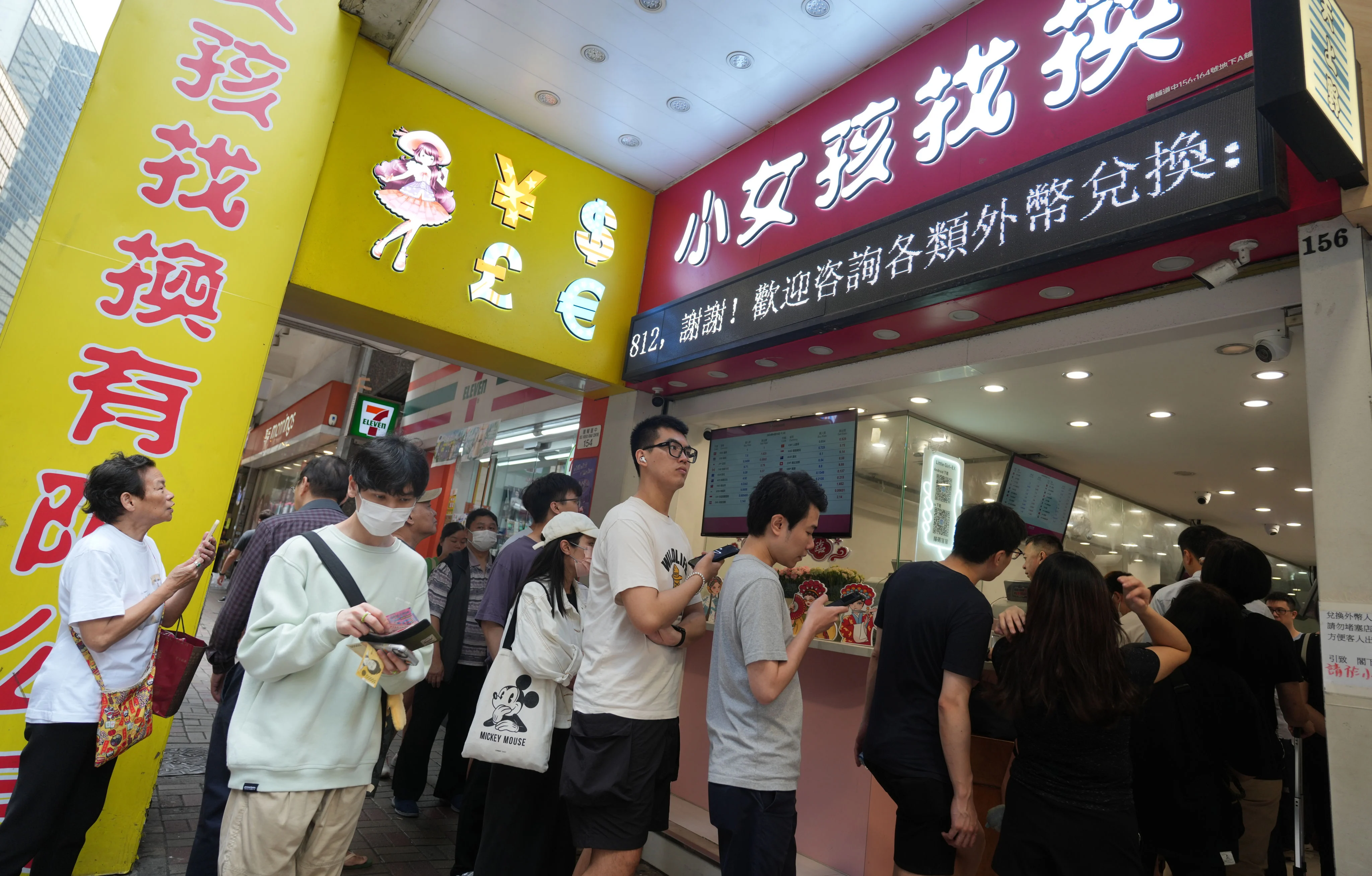Copyright scmp

Currency exchange shops, once a ubiquitous feature of Hong Kong’s retail landscape, are in a gradual, irreversible decline, with their closure precipitated by the pandemic, stricter licensing regulations and adoption of an array of convenient digital payment systems. The number of registered currency exchange shops in the city has more than halved to around 1,050 from a peak of nearly 2,500 in 2018, before the social unrest and border closures brought tourism to a standstill for three years, according to data from the city’s customs department. The declining popularity of currency exchange shops can be gleaned from the record-high leasing rates more than a decade ago, at a time when Hong Kong’s retail property was booming. Benetrition Trading leased 120 sq ft in two adjoining units – unit A1 of 50 sq ft and unit B of 70 sq ft – in Causeway Bay’s Cannon Street in May 2014 for HK$265,000 per month (US$34,090), according to data from the Land Registry. Another company leased the adjacent unit A2 of 50 sq ft to operate a currency shop the same year for HK$260,000, which was widely reported by the local media, although details could not be found in the Land Registry. In March this year, units A1 and A2, totalling 100 sq ft, were leased by another tenant for HK$132,000 per month. “At the time, the shop held the world record in terms of rent on a per square foot basis,” said Rickey Chan Chi-po, the managing director of Dorbo Realty, who helped broker the deal. He added that money exchange shops’ business in the city had been mainly affected by changes in travel patterns, the rise of online payment platforms and Hongkongers going north for domestic consumption, which had led to a sharp decline in the need for foreign currencies. Hong Kong’s retail sector has yet to recover from the havoc wrought by the Covid-19 pandemic. The overall vacancy rate for the city’s four core shopping districts of Causeway Bay, Central, Mong Kok and Tsim Sha Tsui improved slightly to 8.3 per cent in the third quarter from 9.7 per cent in the previous quarter, while rents have declined between 26.3 per cent and 43.9 per cent over the five-year period from 2019 to 2024, according to data compiled by Cushman & Wakefield. Hong Kong’s retail sales have only recently started inching higher. In September, they rose 5.9 per cent from a year ago to HK$31.3 billion, according to provisional estimates by the government. Meanwhile, visitor numbers are on the rise. The city welcomed 36 million tourists in the first three quarters of this year, a 12 per cent increase from a year earlier, according to data from the Hong Kong Tourism Board. While 28 million visitors were from mainland China, there was strong growth in tourists from Japan, Taiwan and Australia. Stricter licensing requirements and tightened regulations have also played a role in the dwindling number of currency exchange and remittance shops, according to Vincent Tse, the founder and director of MPL Consulting, which provides insights on money service operators. “The measures also include the imposition of additional licensing conditions on certain money service operators, restricting specific business activities,” Tse said. The implementation of the anti-money-laundering Competency Assessment, which evaluates an individual’s or organisation’s knowledge and understanding of anti-money-laundering and counter-financing of terrorism regulations and best practices, has affected operators, according to Hong Kong’s Customs and Excise Department. Owners, partners and directors of money service operators are required to take the assessment. Each company has two attempts to pass, and failure may result in denial of a licence. A spokesperson for the Customs and Excise Department said that following the pandemic, the number of licence applications for money service operators had fallen and some of the licensees had exited the market. To strengthen the regulation and oversight of money service operators, the customs department had introduced and updated a series of guidelines governing the application process for such licences, the spokesperson said. These include guidelines on anti-money-laundering and counter-financing of terrorism and criteria for determining fitness and propriety. “The department has been adopting a risk-based approach in regulating money service operators and imposing licensing conditions as appropriate,” the spokesperson said. The rising popularity of online payment systems and stored payment systems has shifted the market towards online payment systems like AlipayHK and Apple Pay, and stored-value providers like Octopus. Meanwhile, credit card payments remain the most widely used and preferred payment method in Hong Kong, followed by mobile wallets, FPS and cash, according to Statrys, a Hong Kong-based fintech company that offers a digital payment platform and financial services for small and medium-sized enterprises. “The decline in the number of [currency shops] coincides with the observation that among the new entrants to the market, there are fewer traditional money service shops,” said the customs department spokesperson. The city has seen a growing number of money service operators with a single office providing online money services, the spokesperson added.



